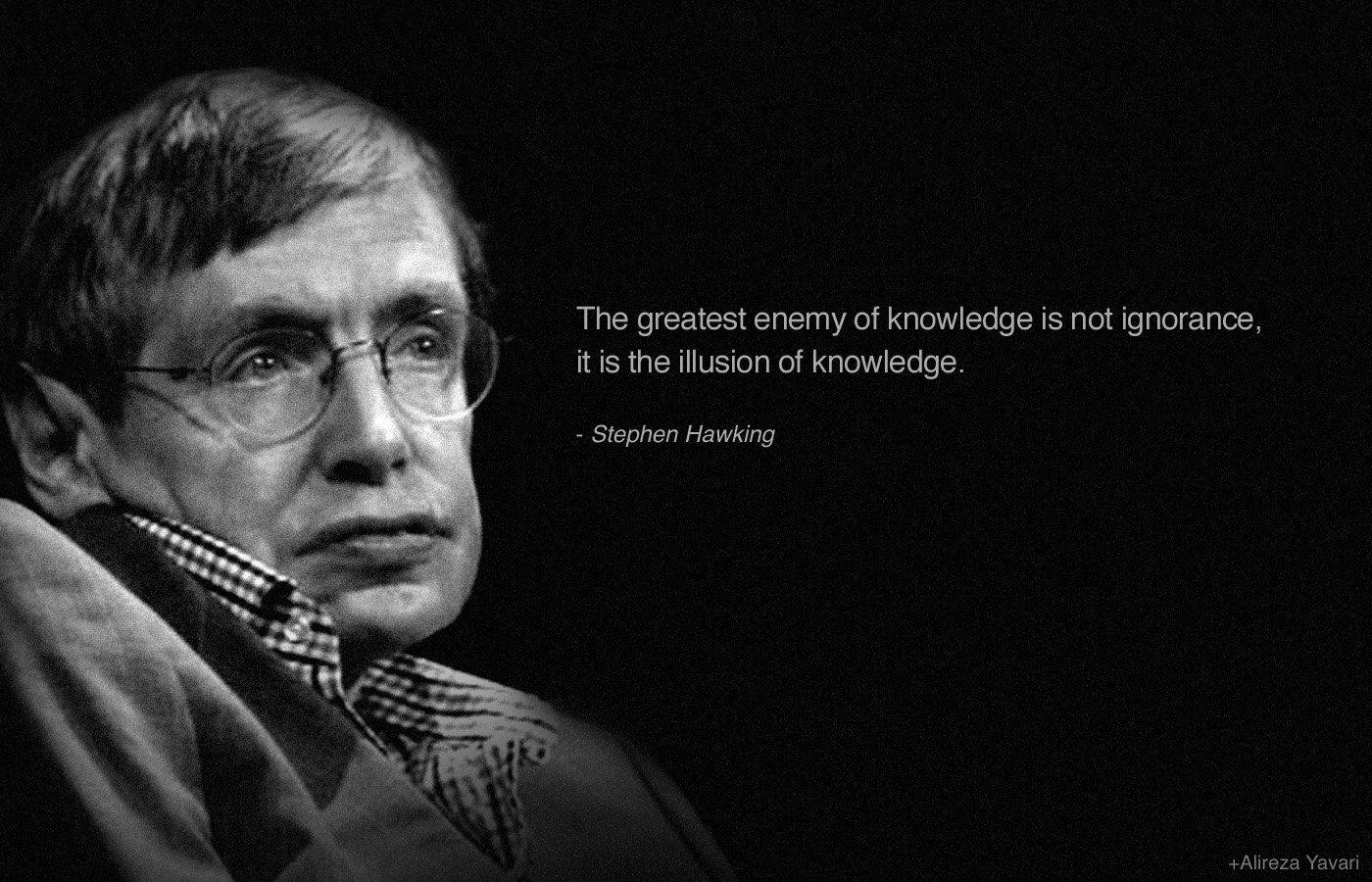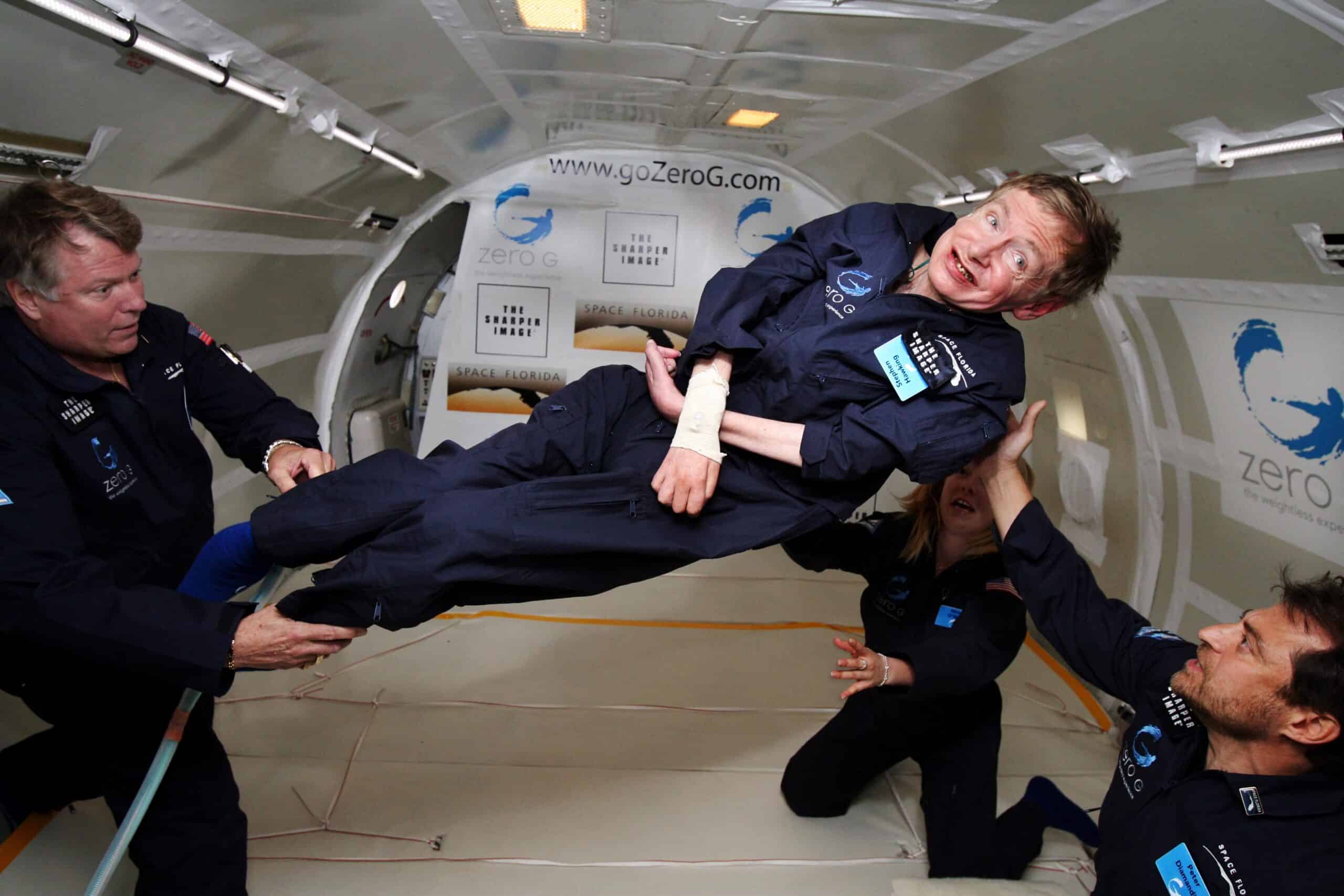Stephen Hawking was a name synonymous with brilliance and an unparalleled intellect that astonished the world for decades. His groundbreaking contributions to theoretical physics and cosmology have left an indelible mark on the scientific community. However, a question that continues to intrigue many is, "What was Stephen Hawking's IQ?" This inquiry leads us on a fascinating journey to explore the life, achievements, and intellect of one of the greatest minds of our time. While IQ scores can often be a measure of one's cognitive abilities, Hawking's genius transcended mere numbers. His life was a testament to overcoming the challenges of a debilitating disease, and his work has inspired countless individuals to pursue the mysteries of the universe.
The notion of Stephen Hawking's IQ often invites curiosity and speculation. While IQ tests are designed to gauge cognitive aptitude, they may not fully capture the essence of a visionary like Hawking. Despite being diagnosed with a rare form of motor neurone disease at the age of 21, he defied all odds and continued to contribute profoundly to the field of physics. His intellect was not just about solving equations or formulating theories; it was about his ability to think beyond the conventional and explore the vast unknowns of the cosmos. As we delve deeper into understanding the enigma of Stephen Hawking's IQ, we discover that his intellectual prowess was not confined to a mere numerical value but was reflected in his relentless pursuit of knowledge and his unwavering determination to unravel the mysteries of the universe.
While the exact IQ score of Stephen Hawking remains a topic of debate, what is unequivocal is his extraordinary impact on science and humanity. His theoretical framework on black holes, the nature of time, and the origins of the universe reshaped our understanding of the cosmos. Stephen Hawking's IQ, whether quantified or not, symbolized his intellectual curiosity and his ability to transform complex scientific concepts into accessible insights for the world. As we embark on this exploration of his intellectual legacy, we are reminded that the true measure of genius is not just in numbers but in the ability to inspire and illuminate the path for future generations.
Table of Contents
- Biography of Stephen Hawking
- What was Stephen Hawking's Early Life Like?
- Stephen Hawking's Academic Journey
- How Did Hawking's Disease Affect His Intellect?
- Stephen Hawking's Major Scientific Contributions
- The Discussion Around Stephen Hawking's IQ
- Key Publications and Works of Stephen Hawking
- What Were Stephen Hawking's Most Notable Lectures?
- How Did Stephen Hawking Influence Modern Science?
- Insight into Stephen Hawking's Personal Life
- The Legacy of Stephen Hawking's IQ
- How Does Stephen Hawking's IQ Compare to Others?
- Stephen Hawking in Media and Pop Culture
- Who Were Inspired by Stephen Hawking's IQ?
- Conclusion: The Real Measure of Stephen Hawking's Genius
Biography of Stephen Hawking
Stephen Hawking was born on January 8, 1942, in Oxford, England. Known for his profound contributions to theoretical physics, Hawking was a visionary who explored the deepest mysteries of the universe. Despite being diagnosed with amyotrophic lateral sclerosis (ALS) in his early twenties, he defied the prognosis and continued his scientific endeavors, becoming one of the most prominent physicists of the 20th and 21st centuries.
| Full Name | Stephen William Hawking |
|---|---|
| Birth Date | January 8, 1942 |
| Place of Birth | Oxford, England |
| Field | Theoretical Physics, Cosmology |
| Awards | Presidential Medal of Freedom, Wolf Prize in Physics, Copley Medal |
| Education | University of Oxford (BA), University of Cambridge (PhD) |
| Date of Death | March 14, 2018 |
What was Stephen Hawking's Early Life Like?
Stephen Hawking's early life was marked by an innate curiosity and a passion for understanding the world around him. Born into a family of thinkers, his father was a medical researcher, and his mother was active in politics. This environment fostered a love for learning, and Hawking excelled in academics from a young age. Despite his struggles with health, his early years laid the foundation for his future as a pioneering scientist.
Stephen Hawking's Academic Journey
Stephen Hawking's academic journey began at the University of Oxford, where he pursued a degree in physics. His brilliance was evident, and he graduated with honors. He then moved to the University of Cambridge to pursue a PhD in cosmology. Under the supervision of Dennis Sciama, Hawking delved into the complexities of black holes and the nature of the universe, leading to groundbreaking theories that challenged existing paradigms.
How Did Hawking's Disease Affect His Intellect?
In 1963, at the age of 21, Stephen Hawking was diagnosed with ALS, a neurodegenerative disease that severely limited his physical abilities. Despite the challenges posed by his condition, Hawking's intellect remained sharp and undeterred. He continued to work tirelessly, utilizing advanced technology and communication aids to share his insights with the world. His perseverance in the face of adversity became a source of inspiration for many.
Stephen Hawking's Major Scientific Contributions
Stephen Hawking's scientific contributions are vast and varied, with a focus on understanding the fundamental laws governing the universe. Some of his most notable contributions include:
- Theoretical predictions about black holes and the emission of radiation, now known as Hawking radiation.
- The proposal that the universe has no boundaries, which revolutionized cosmological theories.
- Collaborations on the theory of cosmic inflation, explaining the rapid expansion of the early universe.
The Discussion Around Stephen Hawking's IQ
The question of Stephen Hawking's IQ has long intrigued the public, yet it remains largely speculative as there is no official record of his IQ score. While some estimates suggest a score of around 160, it is crucial to understand that Hawking's genius was not confined to a numerical value. His intellectual achievements were a result of his unparalleled ability to think abstractly, solve complex problems, and communicate complex ideas with clarity.
Key Publications and Works of Stephen Hawking
Stephen Hawking's prolific career resulted in numerous publications that have had a lasting impact on science and popular culture. Some of his key works include:
- A Brief History of Time – A book that explores fundamental questions about the universe and became an international bestseller.
- The Universe in a Nutshell – A follow-up to his earlier work, delving deeper into the intricacies of modern physics.
- Black Holes and Baby Universes – A collection of essays and lectures that provide insight into Hawking's intellectual journey.
What Were Stephen Hawking's Most Notable Lectures?
Stephen Hawking delivered numerous lectures that captivated audiences around the world. His ability to explain complex scientific concepts in an engaging manner made him a sought-after speaker. Some of his most notable lectures include:
- The Beginning of Time – A lecture discussing the origins of the universe and the concept of time.
- Does God Play Dice? – An exploration of the role of chance and determinism in the universe.
- Into a Black Hole – A detailed examination of black holes and their properties.
How Did Stephen Hawking Influence Modern Science?
Stephen Hawking's influence on modern science is immeasurable. His groundbreaking theories challenged existing frameworks and opened new avenues for exploration in cosmology. He inspired a generation of scientists to pursue questions about the universe and our place within it. His work on black holes and the nature of space-time continues to shape scientific inquiry and theoretical physics.
Insight into Stephen Hawking's Personal Life
Despite his immense scientific contributions, Stephen Hawking's personal life was equally fascinating. He married twice and had three children who were a source of joy and support throughout his life. Despite his physical limitations, he maintained a vibrant social life and had a keen interest in music and literature. His resilience and humor in the face of adversity were admired by many.
The Legacy of Stephen Hawking's IQ
Stephen Hawking's legacy extends far beyond his scientific achievements. His life story is a testament to the power of determination and the pursuit of knowledge. His ability to transcend the limitations imposed by his condition and continue to contribute to science underscores the true essence of intelligence. Hawking's legacy inspires us to question, explore, and seek understanding, leaving an indelible mark on the world.
How Does Stephen Hawking's IQ Compare to Others?
While comparisons of IQ scores can be intriguing, they often fail to capture the full spectrum of an individual's intellectual capabilities. Stephen Hawking's impact on science and society cannot be measured solely by an IQ score. His contributions to our understanding of the universe and his ability to communicate complex ideas to the public set him apart as a truly unique and remarkable mind among his peers.
Stephen Hawking in Media and Pop Culture
Stephen Hawking's life and work have been portrayed in various forms of media, solidifying his status as a cultural icon. Films such as The Theory of Everything and documentaries have depicted his journey and contributions to science. His appearances in popular TV shows like The Simpsons and Star Trek showcased his wit and sense of humor, endearing him to audiences worldwide.
Who Were Inspired by Stephen Hawking's IQ?
Stephen Hawking's intellectual legacy continues to inspire countless individuals across the globe. Scientists, students, and enthusiasts alike draw motivation from his life and work. Hawking's ability to overcome adversity and make groundbreaking contributions to science serves as a beacon of hope and inspiration for those striving to make a difference in their respective fields.
Conclusion: The Real Measure of Stephen Hawking's Genius
In conclusion, while the exact IQ of Stephen Hawking remains a topic of curiosity, it is clear that his genius transcended numerical values. His profound contributions to science, his resilience in the face of adversity, and his ability to inspire generations reflect the true essence of his intellect. Stephen Hawking's legacy is a reminder that the measure of genius lies not in numbers, but in the lasting impact one leaves on the world.

